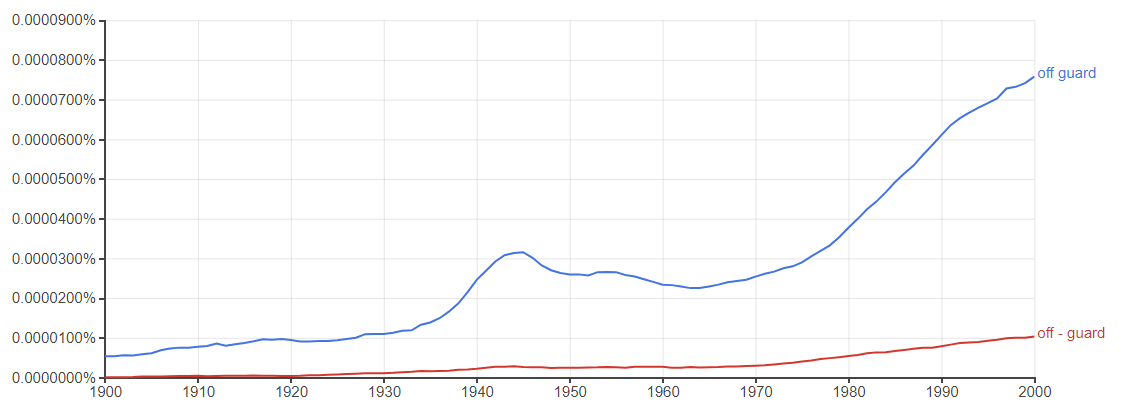Hyphen is required when phrasal adjective comes before the noun it modifies.
For an example,
In the sentence, "Man-eating shark" man-eating is a phrasal adjective modifying the noun shark. This sentence means a shark that eats a man. Now, if you remove the hyphen in "Man eating shark", then it means in some corner of the world some man likes to eat a shark.
So, it is apparent to use hyphen when phrasal adjective modifies noun. In that, you inform your reader explicitly that both the words act as a single unit.
And, if a compound word is not modifying any noun that it precedes, then we are not required to use hyphen or it is completely optional to use hyphen. Then, it becomes the matter of personal choice.
Now, let us consider the three specific instances in your book.
Instance 1:
“I wanted to find it before my opponents did,” he clarified. “So, if anything was brought up during one of the many townhall debates we had, I was ready to respond and defend myself instead of being caught off guard.”
Observation 1: Here, the compound word off guard is used in an idiom caught [sb] off guard. Here, the compound word off guard is not modifying any word. So, we are not required to use the hyphen.
Instance 2:
In hindsight, this was a fatal mistake, as Superior Holt caught us off guard and alone in the vestibule as we were attempting to leave.
Observation 2: Again, the compound word off guard is not modifying any word. So, the hyphen is not required.
Instance 3:
The lack of context to his question caught me off guard.
Observation 3: Again, in the idiom caught [sb] off guard off guard is not modifying any word. So, you are not required to you the hyphen.
American Dictionaries
One that support compound word off guard without hyphen:
Merriam Webster [check under entry 6 b]
Example sentence from M-W: "Her angry response caught me off guard."
Here, if you observe, then the compound word off guard is not modifying any noun. So, M-W prefers to use unhyphenated compound word. It is a matter of preference.
Dictionary.com [check under idioms, you have to scroll little bit]
Example sentence from Dictionary.com: "The blow from behind caught him off guard."
Here, again off guard is not modifying any noun.
One that support compound word off-guard with hyphen:
- The American Heritage https://ahdictionary.com/word/search.html?q=off%20guard
Example from The American Heritage Dictionary: "a quiz that caught the class off-guard"
Here, the American Heritage Dictionary prefers to use the hyphenated compound word off-guard even though it is not modifying any noun. If you use, unhyphenated off guard in same example. The meaning or the intention of the sentence will not change. It is a matter of choice of The American Heritage Dictionary.
British Dictionaries: I am not taking liberty to explain further. I guess, I have covered the explanation in detail.
One that support compound word off guard without hyphen:
Oxford Dictionary
Cambridge Dictionary
One that support compound word off-guard with hyphen:
- Macmillan Dictionary
- Collins Dictionary
- Longman
Google Books Ngram Viewer search suggest that usage of off guard is more popular than off-guard. In other words, there are few instances where off-guard modifies the noun it precedes or the author simply prefers to use hyphenated off-guard instead of unhyphenated one.
Blue is off guard and Red is off-guard.


